Don’t feel defeated by the election result, Gillian Darley exhorts community activists and volunteers
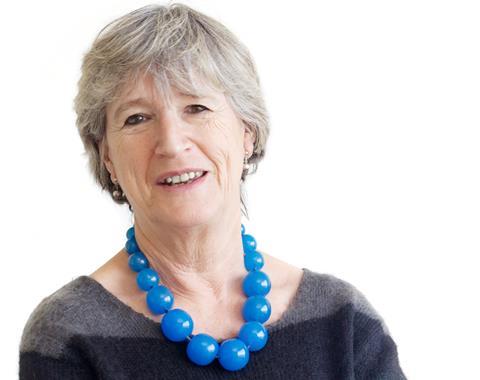
I’m finalising this piece just before going to a funeral. Frank Dobson, our MP for many years, was the epitome of the local politician who never lost touch with his constituency even as he gained major cabinet responsibilities to be, finally and tragically, set up as a stooge in the London mayoral elections of 2000. Before, during and after that he spent a great deal of his time supporting the organisations that had tried to tape over the gaping holes in local authority responsibilities as the money got ever tighter.
One of his key charities was Coram’s Fields, an open space and playground for children (and accompanied adults) laid out after the demolition and relocation of the Foundling Hospital almost a century ago. Among the most persuasive voices in the long campaign to secure it and fight off development (have a look at Hansard, it’s all online) were George Lansbury MP and Ellen Wilkinson MP, giants of the inter-war Labour movement and die-hard social activists. Dobson chaired the charity for many years, including during the time it started to find other sources of financial support when the once-generous grant aid from the London Borough of Camden dried up. The charity has no endowment.
Coram’s Fields was providing accessible open ground when most Bloomsbury squares were still under lock and key. Nearby, a scattering of little disused burial grounds, later landscaped as pocket parks for all, offered poor families what Octavia Hill memorably called “outdoor sitting rooms”. They were almost the only breathing spaces in the tight, desperately overcrowded areas of Holborn. Bombed to bits in the Blitz, and rebuilt with far more elbow room, it’s an area of central London that still retains a sense of urban coherence, permanence and stability. The Singapore solution to our capital is not welcome around here.
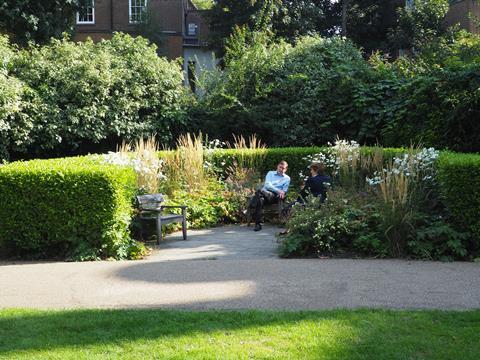
Whenever volunteers achieved something in Frank Dobson’s area he was available for a few words, a supportive virtual hug for those who came up with schemes which might add to the facilities in an area which looked like rich pickings for redevelopment, by the Royal Mail Group at Mount Pleasant (see my comments passim), for example, or even ambitious local institutions such as the University of London which had first eyed up the Foundling Hospital site as long ago as 1912.
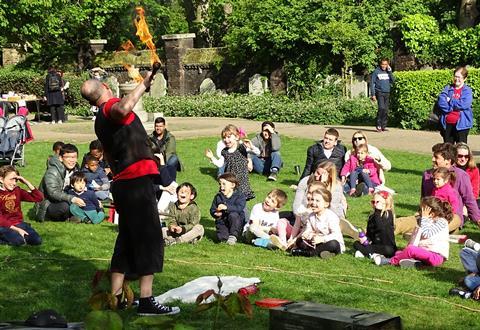
St George’s Gardens, one of the aforesaid open-air sitting rooms, lies off Handel Street, named after the philanthropic composer who supported Thomas Coram’s Foundling Hospital with an annual fund-raising performance of the Messiah. When the Friends of St George’s Gardens, formed more than 25 years ago, raised money and improved a corner in which a broken-down greenhouse had lurked, it was Dobson who came along to declare the addition open and to give generous thanks to the volunteers. Adding something fresh (hedged alcoves, fresh planting and new seats, all looking good 10 years on) reinforced the affection felt by locals for their oasis. Dobson did not allow such effort to go unremarked.
The Conservative government that gained power on Friday 13th will not be sailing in David Cameron’s heavily listing ship Big Society, far less following Frank Dobson and those unseated, demoralised MPs from the north-east and elsewhere who had been pursuing by any means at their disposal a version of realisable social responsibility. The food banks, the volunteer-run or closed libraries, the broken care system, the levels of homelessness, bankrupt schools and a health system teetering on the edge of disaster – well, that was just for starters. RIP Frank Dobson.


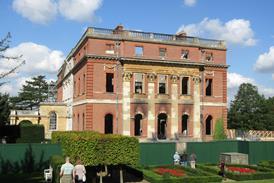
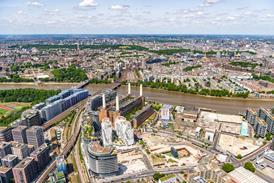

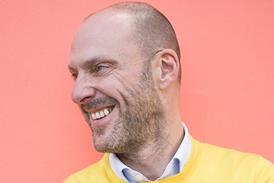










2 Readers' comments